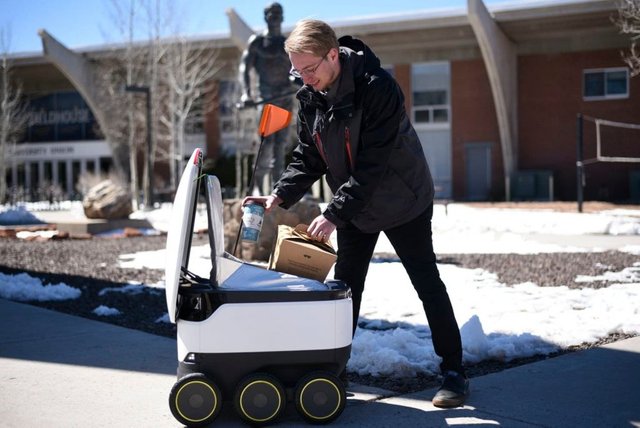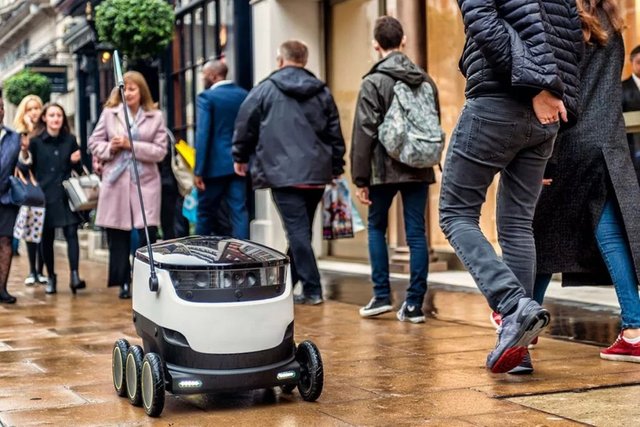In the first days of January, 25 food delivery robots appeared on the George Mason University's campus in the USA. Robots built in and dedicated the application wrote the Bay Area start-up belonging to Starship Technologies.

After three months of the experiment, it turned out that thanks to the robots, students began to eat better. Research conducted before the experiment shows that almost 90 percent. young people give up eating breakfast not for lack of money, but for lack of time. In short, when we have a choice of a longer sleep or breakfast, we choose sleeping. I think each of us would choose that way.
Meanwhile, it turns out that thanks to the robots, students began to eat breakfast. The same applies to hot meals at dinner. And in this case it was a lack of time. But the device that keeps pace with the busiest ones has successfully convinced young people to order a warm meal, with delivery exactly to the place that at the moment seems to be optimal. Sometimes we just want to sit on a park bench, and sometimes we do work to do in a building away from the canteen. Meanwhile, the robot commutes anywhere on campus in no more than 15 minutes.

After three months of the experiment, it turned out that thanks to the robots, students began to eat better. Research conducted before the experiment shows that almost 90 percent. young people give up eating breakfast not for lack of money, but for lack of time. In short, when we have a choice of a longer sleep or breakfast, we choose sleeping. I think each of us would choose that way.
In the long run, well-fed students can contribute to better university performance. Not to mention the fact that a university which offers such an offer can attract more candidates, and this always raises the level of education. We already know that a similar system will be introduced at the next American Flagstaff University in Northern Arizona. A fleet of 30 Starship Technologies robots will drive the campus of this university.
source: http://www.naukatolubie.pl